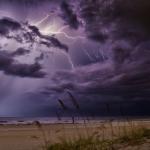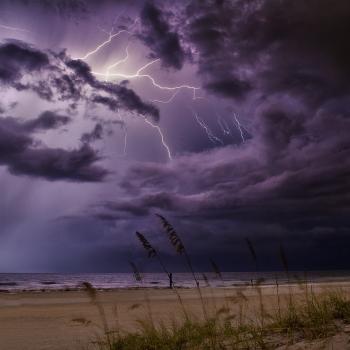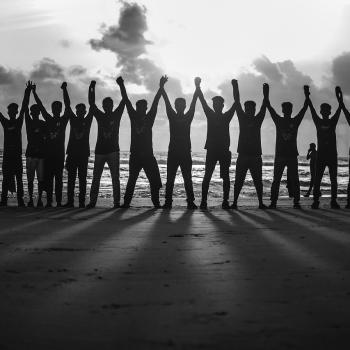
Image by Couleur from Pixabay
Hopefully, 2024 was an excellent year for you. For me, last year was spent walking through valleys. Whether this new year is good or bad, I hope to encourage you to find a particular type of faith in 2025. My challenge (for myself and you) is to live an “even if” type of faith. But what does that mean? It is a faith that is not determined by experiences. Instead, faith defines how I see my circumstances every day. I want to see each day filled with hope and joy. How I walk by faith will determine my thoughts and my perceptions. This blog will examine the first of three Bible stories that will help us find hope in 2025.
Flames
The first story is from the Old Testament. In the book of Daniel, we learn that the people of God are in exile. Their kingdom has been conquered, and a foreign king ruled over them. One day, this king demands they kneel and worship a statue of his likeness. Three men knew that only God should be worshiped. So, they refused to bow down. The king grew so angry that he had them thrown into a fiery furnace. It was so hot the guards who tossed them in died.
But why did the men not just bow? Because they knew that God had given them the best instructions on living. Bowing to false idols was one of the top things you needed to avoid, even if everyone else was doing it. No matter that you were exiles in a strange land. Particularly when you didn’t understand why God would allow this foreign power to conquer your kingdom or how God could let His chosen people be conquered and suffer. How long would this exile continue? They didn’t and couldn’t know if they would see freedom in their lifetime.
They Would Not Bow
But these three never lost hope. In their faith, they declared that God could save them, and EVEN IF He didn’t, they still would not bow. God, they knew, was a redeemer. He was a God of salvation. They had heard how he had taken his people out of Egypt over and over as their families celebrated the Passover each year. They knew who God was. Despite being in exile, they knew He could save them. But even if He didn’t, it was far better to stand in faith than to bow to this lowly, foreign king.
And they were saved. God showed up with them in the fire. Their faith saw their hope become true. Some of us have heard the story so often that we fail to see the tension. We know that they get out alive. But the likelihood is that they had friends or relatives during this time that didn’t make it. They didn’t bow, and it likely cost them their life. Check out the book of Hebrews; it reminds us that not all followers of God made it out so easily. Imagine the courage it took to say “Even if.” They had a full understanding that they were risking everything. And still, they refused to bow.
Even Though I Walk Through the Valley
Last Christmas, my wife and I shared Chinese food and played board games together. We didn’t travel to see family because she was recovering from surgery. She tore a labrum in her hip, and it had been repaired. We were hopeful that the surgery would relieve her of constant pain. Unfortunately, it still didn’t. One tendon was fixed, but another flared up in tendonitis, which has not gone away. Living in or seeing someone having to deal with constant pain is a long, slow walk through a dark valley.
On top of that, I was struggling at work. I had accepted a position with the promise that the culture and management would improve. I would be part of the change that would improve the function and experience of others in that position. But that didn’t happen. In fact, it got worse. So I started asking questions like: But hadn’t God opened this door? I thought so. I had prayed about it, and it seemed like the right place at the right time. Did I misunderstand or mishear? Or was God training me, teaching me how to walk in valleys? Sometimes, having faith means we won’t get to know the answers to those types of questions. I still don’t have any answers to my questions.
That April, our church held 24 hours of prayer before Easter Sunday. This year, we got a little scroll on which to write a prayer request. Someone would get that piece of paper and pray for it. My request was simple. No more constant pain for my wife. This year’s sermon was based on the refrain from a popular Easter song. Sunday is coming, and we would proclaim it as a congregation. As the song states: Things look bad on Friday, but don’t worry, Sunday is coming. I have heard the stories and know what God can do. God has blessed me in more ways than I can count or deserve. But on this request, there was no moment of miraculous instant healing. I was still left asking after Easter weekend when my Sunday was coming.
From the Valley to the Fire
Roughly two weeks after Easter, my wife had a follow-up appointment for an MRI to do a biopsy on a mass they had found in her breast. Ten years ago, we had walked through a scare when they found dense tissue, but it was nothing. We assumed it was going to be the same experience this time around. We were wrong. The first test returned to her medical app on Saturday morning, which upgraded the mass from suspicious to highly suspicious. By the afternoon, another test had been reported, stating the mass was cancerous.
For those keeping score at home, Sunday hadn’t come. The valley had turned into a fiery furnace. Was God with us? I didn’t know what to say. What was I supposed to feel? Mostly, I was still numb and in shock. This is the news you hear about others, not you and your family. If God is for us, why was this happening? Like most humanity, I hope suffering and sickness have meaning because it seems an awful experience if it does not. If suffering is meaningless, then the purpose of life would be to do our very best to avoid it. Part of faith is believing that God can and does redeem those difficult situations we face.
Even If
There seems to be an underlying belief in cultural Christianity that God will provide protection from anything that seems hard and difficult in life. In fact, some seem to sell it as the main benefit of following Christ in the modern day. Follow Christ, they say, and you will have a charmed life filled with answered prayers and blessings beyond counting. Yet Jesus proclaimed that those “poor in spirit” would be blessed. He told his closest friends that they would experience trouble in this world. In the end, He has overcome the world. So as followers, we can live with hope, joy, and peace that passes understanding. But that doesn’t mean that we won’t experience trials and troubles. There is no promise that we won’t suffer here on the earth.
Faith comes down to what you believe about God. Faith says that God can, even if He doesn’t. And when He doesn’t, in faith, we proclaim that there is a better plan or accept that His ways are higher (especially when we can’t understand). Like me, maybe you have heard the stories. Maybe you have personal experiences that can’t be explained away. But valleys and fiery furnaces demand that we refine what we believe. What is it that you believe about God? What you believe is the foundation on which you build your thoughts. Your thoughts determine the actions you are willing to take. The three men knew that life was more than just living. They lived out what they believed. When faced with possible death, they stood strong in their faith. And they made it clear that EVEN IF God didn’t save them, they would not bow.
Faith in 2025
The first step on this journey of hope for 2025 starts with a commitment to an “Even if” kind of faith. Paul explains that the whole earth groans in anticipation of the day that God makes all things right. But we aren’t there yet. Sickness, pain, and disappointment are realities. Following Jesus does not make you immune. What good is faith?
“Even if” faith is best explained as “God with us” faith. We walk through the valley, but His rod and staff guide and protect us. One of my favorite names for the Savior will always be Immanuel (it means God with us). Our hope remains (despite circumstances) because we know that God walks with us. God has not abandoned us. And if God has not abandoned us, there is always the chance to see God move mountains. And so we have a choice. Live in the pain, suffering, and difficulties this world can bring without faith. Or, know that even now, God is at work, redeeming the difficult, the hard, the messy in only the way He can. Believe that He will because our faith will drive our thoughts, which determines our actions.
I hope 2025 is a year of watching mountains fall, but “even if” that doesn’t occur, may it be filled with hopeful expectations as you walk with God.













